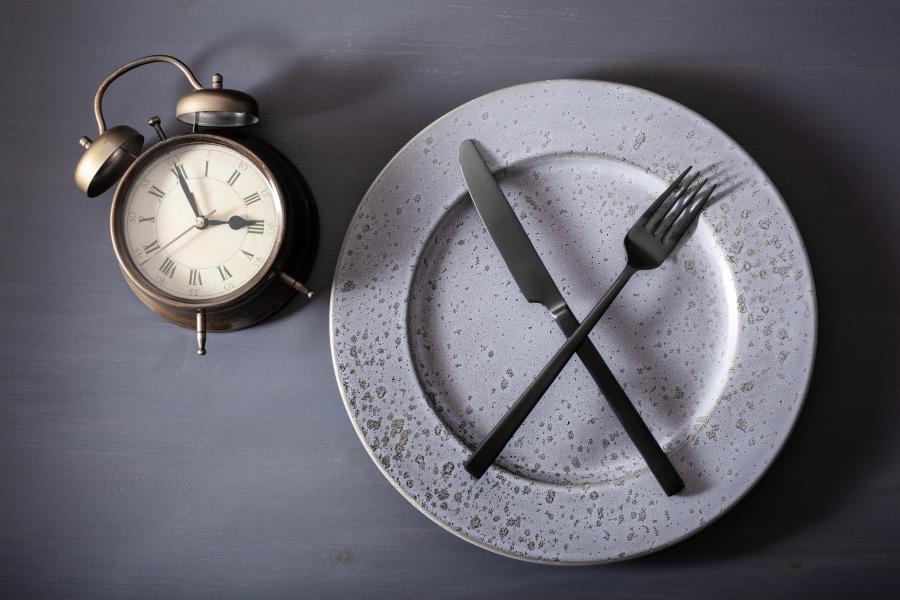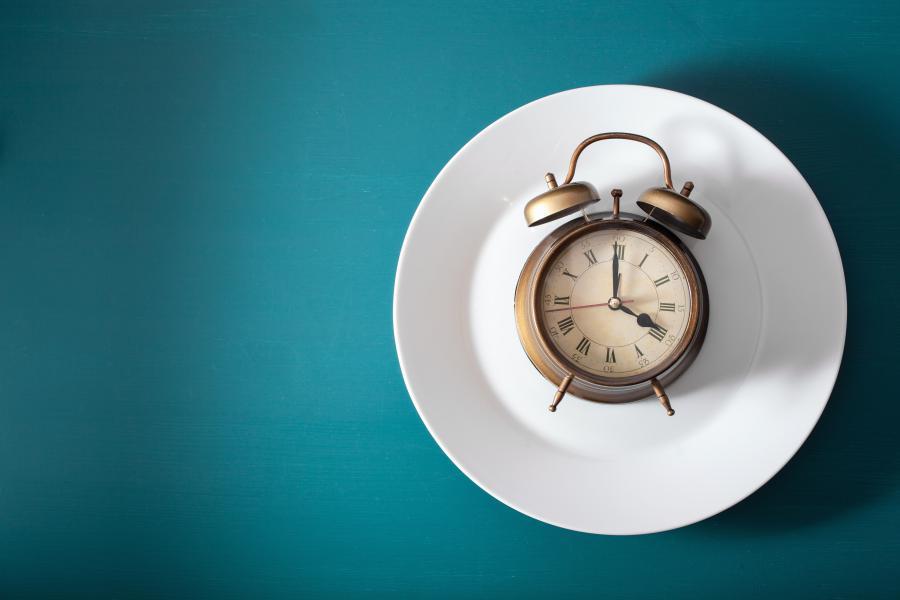When you’re keen to start intermittent fasting, you’ll want all the information you need at your fingertips. Although we’ve addressed all the key points in the first nine chapters, there are a few more questions to answer.
Here, we address some of the most common questions about intermittent fasting.
Hopefully, the answers will help you to make a final decision about whether IF could be right for you. It should also help you to get started with your new lifestyle.
Exercise and Fasting
Many people wonder whether they can carry on exercising if they’re fasting. In most cases, intermittent fasting won’t stop you from working out in the long-run.
It may take a little time, though, to adjust to your new regime. Some people who follow this lifestyle even find they’re more energetic while fasting! Some people worry that they’ll lose muscle if they fast.
This is something that is a danger with any diet. However, you can avoid this happening. If you eat plenty of protein in your eating window and do regular resistance training you should be fine.It’s advisable to exercise at the end of your fasting period.
Usually, you’ll feel hungry around 30 minutes after finishing your work out. If you break your fast at that time, you’ll feel satisfied.
What Should you eat During your Eating Window?
When you follow an IF lifestyle, there are no restrictions about what you can eat in your eating window. This is why it is so different from other ways of dieting. You aren’t restricted to amounts or specific food types. However, it’s wise to remember that you should still make healthy choices. If you over-indulge regularly you won’t see the benefits of IF. The best solution is to eat a balanced diet in your eating window.
This will help you to maintain your energy level while still losing weight. Foods that are dense in nutrients like seeds, beans, nuts, wholegrains, vegetables and fruits are good choices. You should also consume plenty of lean protein.
There are certain foods that are especially beneficial if you follow this way of eating:
- Avocados – yes, they’re high in calorie. However, they are packed with monounsaturated fats. This makes them very satiating. If you add a half avocado to your meal you’ll feel much fuller.
- Fish – you should try to eat a minimum of 8 ounces of fish every week. Fish is packed with protein, healthy fats and vitamin D. It’s also good for your brain health.
- Cruciferous vegetables – foods such as cauliflower, Brussels sprouts and broccoli are good choices. They’re packed with fiber to help you avoid constipation and feel more full.
- Potatoes – many people worry that potatoes are bad for you. However, they’re very satisfying and will keep you full for longer.
- Legumes and beans – although these are carbs, they’re low calorie and give you lots of energy. They are also packed with protein and fiber.
- Probiotics – eating foods rich in probiotics like sauerkraut, kefir and kombucha helps keep your gut happy. This will help you to avoid stomach issues when you’re adjusting to this diet.
- Berries – strawberries, blueberries and others are packed with nutrients like vitamin C. They’re also rich in flavonoids –something that is known to boost weight loss.
- Eggs – every egg has a massive 6 grams of protein. Simple and quick to cook, eggs make you feel full.
- Nuts – yes, nuts are high in calories. However, they’re packed with polyunsaturated fat that helps you feel full.
- Wholegrains – yes, wholegrains are also carbs! However, they’re full of protein and fiber. You don’t need to eat too much to feel full for longer. A study has even shown that eating wholegrains can boost your metabolism.
What can you Have in Your Fasting Period?
So, you know what you can eat in your eating window. What can you have in your fasting period? The answer depends on which fast you’re doing.
If you’re doing the 5:2 diet, you can eat up to 500 or 600 calories on your fast days. Obviously, that’s quite restrictive. So, you can maximize the amount you can eat by including lots of low calorie, high-nutrient foods. Vegetables and fruits are staples of your fast days.
If you’re doing any of the other fasting methods, you can’t eat any solid foods at all. You also can’t have any drinks that contain calories. Luckily, though, there are lots of beverages you can have to stay hydrated.
It’s obvious that you should have lots of water in your fasting window. Sparkling and still water are both fine. If you wish, you can add a squeeze of lime or lemon for a little more flavor.
You could also add more flavor with some orange or cucumber slices.You can’t add any artificially-sweetened enhancers though. These could damage your fast.
Another good beverage for your fasting period is black coffee. It contains no calories and won’t affect your insulin levels. You can have decaffeinated or regular coffee but don’t add milk or sweeteners. If you want more flavor, try adding cinnamon or other spices. Some people say that black coffee could enhance IF’s benefits.
Caffeine may support the production of ketones. It can also help to support a healthy level of blood sugars in the long-run. A note of warning, though. Some people find that if they drink coffee during their fast they get an upset stomach or racing heart. You may need to take care to monitor how you feel if you drink black coffee.
If you’re fasting for 24-hours or longer, try vegetable or bone broth. Don’t use bouillon cubes or canned broth though. It’s full of artificial preservatives and flavors that will damage your fast. Make it at home for the best results.
Tea can also help you to feel full.
You can drink any type of tea in your fasting window. Oolong, black, green and herbal tea are all fine. Tea also helps to improve your fasting by supporting cellular and gut health as well as probiotic balance. Green tea is especially good for managing weight and helping you feel full.
Apple cider vinegar offers many health benefits. You can add this to the list of things you can have during your fasting period. It will support your blood sugar level and digestion. It could even boost the results of your fasting.
There are, however, some drinks that you need to avoid while you’re fasting. You may not realize that “zero-calorie” sodas can break your fast. While diet sodas technically have no calories, they’ve been shown to inhibit fasting’s positive effects.
This is because they get their sweet flavor from aspartame or other artificial sweeteners. These trigger your insulin response. You should therefore avoid drinking them in your fast window.
Many people ask whether they can have coconut water or almond milk in their fast period. While both of these are healthy options with benefits for your wellness, they contain lots of sugar. Since sugar is a carbohydrate, you’ll no longer be fasting if you consume it. You shouldn’t drink these beverages in your fasting period.
One very common question is whether it’s possible to drink alcohol if you’re doing an IF diet. It’s important to limit your consumption of alcohol to your eating window. This is because most alcoholic drinks contain a lot of calories and sugar.
Therefore, drinking them will break your fast. Also, alcohol will have more effect on you if you have an empty stomach. Even a single glass of wine may make you feel unwell!
Can Children try Intermittent Fasting?
There is no specific evidence to say whether it’s safe for children to try intermittent fasting or not. Some experts say that it’s perfectly fine, especially for those who are already overweight.
Others say it’s a bad idea since children are going through a period of rapid growth. They need sufficient calories to support their development and growth. Children need to eat enough protein, vitamins and minerals.
If they don’t get enough, they could become ill. It’s probably wise to speak to a doctor before putting a child on an IF diet.
Is Fasting Unhealthy?
It’s only natural for people to ask whether fasting is unhealthy. Those who extol the virtues of more traditional diets say that fasting could slow your metabolism. This could cause you to put on weight, not lose it. Therefore, they say, fasting is unhealthy.
However, this isn’t the case at all. People have been fasting for centuries with no ill effects. Studies carried out on people during Ramadan have shown that extended fasting causes no health issues for most people.
There are a few issues to bear in mind, though. Fasting isn’t for everyone. Some people find it difficult to fit it into their lives. They struggle to sustain this lifestyle for extended periods.
They may find it difficult to fit in socializing, work and exercise around fasting windows. This can lead to an inconsistent eating schedule that may have unhealthy consequences.
There are a few other issues to consider too. Some people who try IF begin to lose touch with the signals that tell them that they’re full and hungry. This can make it hard to stick to IF in the long-run without developing an eating disorder.
Some people who are prone to eating disorders become obsessed with food and eating. Some binge during their eating window.
Others push their fasting further and further and become fixated with not eating. It’s therefore important to approach IF with caution if you have a history of disordered eating.
On the whole, though, IF isn’t just not unhealthy, it can be positively good for you.It can help you to effectively manage your weight and avoid obesity.
It can improve your metabolism and your insulin resistance. It can also decrease your inflammation and boost your cell repair as well as support a healthier gastrointestinal tract




